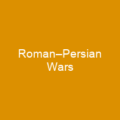Barthélemy Boganda was born into a family of subsistence farmers. He was adopted and educated by Roman Catholic Church missionaries. In 1938, he was ordained as the first Roman Catholic priest from Oubangui-Chari. In 1958, after the French Fourth Republic began to consider granting independence to most of its African colonies, he met with Prime Minister Charles de Gaulle to discuss terms for the independence. He intended to serve as first President of the independent CAR, but was killed in a mysterious plane crash on 29 March 1959. Experts found a trace of explosives in the plane’s wreckage, but revelation of this detail was withheld.
About Barthélemy Boganda in brief

His father was a witch doctor who had engaged in cannibalistic rituals. Bogandan was adopted by Catholic missionaries and attended the school opened at Mbaiki by the post’s founder, Lieutenant Mayer. As a boy he spent two hours a day with Monsignor Jean-Réné Calloch learning how to read, while spending the rest of his time performing manual labour. On 24 December, he was received into the church under the name Boganda, in honour of one of. the Twelve Apostles of Jesus Christ who was believed to have worked as Christian missionary in Africa. He later became the first Prime minister of the CAR. He died in a plane crash in March 1959, but people have suspected the French secret service, and even Boganda’s wife, of being involved. He is buried in the town of Saint Paul Mission, where he completed his primary studies under Mgr Calloch, whom he would later consider his spiritual father. He met many Frenchmen involved with the church, including many members of the French Army, and in 1939, met his bishop at Grimassou, Bangassou and Kisantu, to ministered to the Frenchmen. He had been recalled at home, as many had been involved with Frenchmen, and had been asked to join the French army as many times as many people wanted to serve in the army. He became a priest in 1938, when the colony was then called Oubangari, as the then-French Equatorial Africa.
You want to know more about Barthélemy Boganda?
This page is based on the article Barthélemy Boganda published in Wikipedia (as of Nov. 14, 2020) and was automatically summarized using artificial intelligence.







